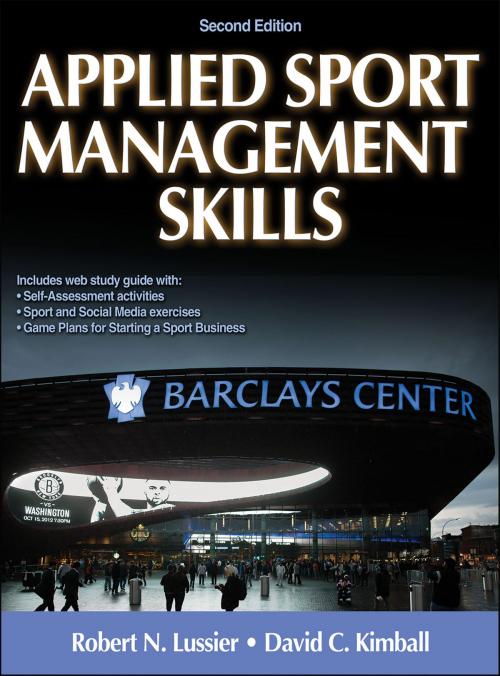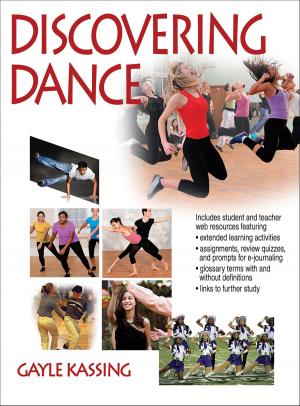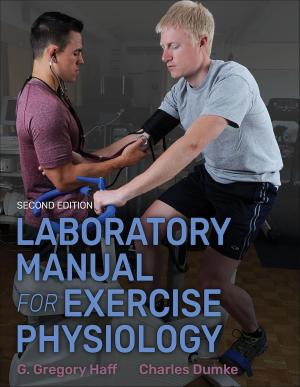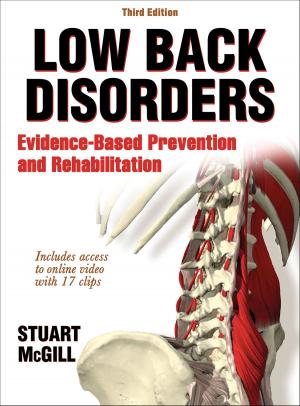Applied Sport Management Skills
Nonfiction, Sports, Reference, Business & Finance, Industries & Professions, Industries| Author: | Robert N. Lussier, David C. Kimball | ISBN: | 9781492582700 |
| Publisher: | Human Kinetics, Inc. | Publication: | November 15, 2018 |
| Imprint: | Human Kinetics, Inc. | Language: | English |
| Author: | Robert N. Lussier, David C. Kimball |
| ISBN: | 9781492582700 |
| Publisher: | Human Kinetics, Inc. |
| Publication: | November 15, 2018 |
| Imprint: | Human Kinetics, Inc. |
| Language: | English |
Applied Sport Management Skills, Second Edition With Web Study Guide, uses the four management functions of planning, organizing, leading, and controlling to teach students how to become strong leaders and managers in the world of sport. This comprehensive and fully updated text provides an overview of management topics with a unique focus on developing the skills necessary for managing sport organizations.
The text’s how-to approach and unmatched learning tools help students put into practice what they will be doing as sport managers—including creative problem solving, strategic planning, and developing the skills to lead, organize, and delegate. By taking principles and concepts presented in the text and applying them to professional practice, students will be able to assess how their interests and skills can contribute to the growing field of sport management.
Applied Sport Management Skills, Second Edition, has been thoroughly updated to enhance the educational experience. Two new features have been added to the second edition. Social Media Exercises expose students to the expanding role of social media in managing a sport organization, and Starting a Sport Business features encourage students to explore the real-world needs of sport entrepreneurship, such as developing an organizational structure, formulating ideas on leading employees, and controlling the financial aspects of their sport business.
These new tools complement popular features from the first edition to help students understand leadership and management in the sport industry:
• Reviewing Their Game Plan chapter-opening scenarios, revisited throughout each chapter, provide a cohesive thread to keep students focused on how sport managers use the concepts on the job.
• Chapter-closing case studies, questions, and exercises help students apply knowledge to specific situations.
• Applying the Concept question boxes provide an opportunity for critical thinking by asking how specific concepts are relevant to a sport situation.
• Time-Out boxes demonstrate how text concepts relate to students’ actual experience in sports, including part-time, full-time, and summer jobs.
• Self-assessment exercises offer insight into students’ strengths and weaknesses.
• Behavior models provide step-by-step guidance on handling day-to-day situations that students will face in the sport setting.
• Developing Your Skills features, learning outcomes, and key terms are revisited throughout the chapter to reinforce key points.
Instructor resources have been updated with this edition, and the expanded instructor guide provides advice on using the student web study guide with the book material to better engage students. The web study guide is better organized and integrated with the text to help students use the learning activities in a dynamic and interactive setting. Exercises appearing in the book are correspondingly numbered in the web study guide, where students may test their understanding with quizzes and other activities that further reinforce important concepts. Many activities in the web study guide can be completed as graded class assignments, whereas others provide immediate correct or incorrect feedback to students.
Applied Sport Management Skills, Second Edition, provides readers with a thorough understanding of the management principles and concepts used in sport organizations and the challenges that managers face. This understanding is enhanced by the application of that knowledge and by the focus on developing management skills, allowing students to build a solid foundation toward a fulfilling career in sport management.
Applied Sport Management Skills, Second Edition With Web Study Guide, uses the four management functions of planning, organizing, leading, and controlling to teach students how to become strong leaders and managers in the world of sport. This comprehensive and fully updated text provides an overview of management topics with a unique focus on developing the skills necessary for managing sport organizations.
The text’s how-to approach and unmatched learning tools help students put into practice what they will be doing as sport managers—including creative problem solving, strategic planning, and developing the skills to lead, organize, and delegate. By taking principles and concepts presented in the text and applying them to professional practice, students will be able to assess how their interests and skills can contribute to the growing field of sport management.
Applied Sport Management Skills, Second Edition, has been thoroughly updated to enhance the educational experience. Two new features have been added to the second edition. Social Media Exercises expose students to the expanding role of social media in managing a sport organization, and Starting a Sport Business features encourage students to explore the real-world needs of sport entrepreneurship, such as developing an organizational structure, formulating ideas on leading employees, and controlling the financial aspects of their sport business.
These new tools complement popular features from the first edition to help students understand leadership and management in the sport industry:
• Reviewing Their Game Plan chapter-opening scenarios, revisited throughout each chapter, provide a cohesive thread to keep students focused on how sport managers use the concepts on the job.
• Chapter-closing case studies, questions, and exercises help students apply knowledge to specific situations.
• Applying the Concept question boxes provide an opportunity for critical thinking by asking how specific concepts are relevant to a sport situation.
• Time-Out boxes demonstrate how text concepts relate to students’ actual experience in sports, including part-time, full-time, and summer jobs.
• Self-assessment exercises offer insight into students’ strengths and weaknesses.
• Behavior models provide step-by-step guidance on handling day-to-day situations that students will face in the sport setting.
• Developing Your Skills features, learning outcomes, and key terms are revisited throughout the chapter to reinforce key points.
Instructor resources have been updated with this edition, and the expanded instructor guide provides advice on using the student web study guide with the book material to better engage students. The web study guide is better organized and integrated with the text to help students use the learning activities in a dynamic and interactive setting. Exercises appearing in the book are correspondingly numbered in the web study guide, where students may test their understanding with quizzes and other activities that further reinforce important concepts. Many activities in the web study guide can be completed as graded class assignments, whereas others provide immediate correct or incorrect feedback to students.
Applied Sport Management Skills, Second Edition, provides readers with a thorough understanding of the management principles and concepts used in sport organizations and the challenges that managers face. This understanding is enhanced by the application of that knowledge and by the focus on developing management skills, allowing students to build a solid foundation toward a fulfilling career in sport management.















